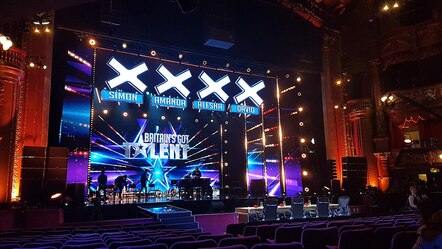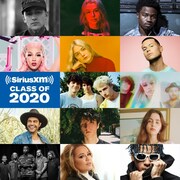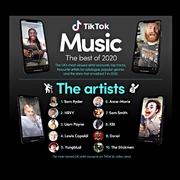New York, NY (Top40 Charts) The televised music competition or talent show has undoubtedly forged a unique place in pop culture over the last two decades. American Idol launched the career of
Kelly Clarkson, giving her two number-one singles on the US Billboard charts. In the UK, the Christmas number one spot has been held by a reality TV show winner on no fewer than eight occasions this century and its predecessor Pop Idol delivered 11 number one singles. Year upon year, music talent shows on both sides of the Atlantic have spawned stars and hit singles like the Stock Aiken and Waterman talent conveyor belt of the late eighties.
Have they had their day though? Fans have certainly rebelled against the shows in some areas, with the UK public managing to force Rage Against The Machine's expletive-laden track Killing in the Name Of to number one in the 2009 UK Singles Chart, keeping Joe McElderry's cover of The Climb off the top spot. It was a campaign backed by top bands and artists such as Dave Grohl, the Prodigy and Kasabian.
That started a fall from grace which has perhaps been as spectacular as the swift rise of TV talent shows. Of course, these shows are nothing new, with Star Search and Amateur Hour setting the bar high in the US, and Marti Cane's New Faces doing the same in the UK. However, it was the driving force of one man that catapulted the shows into orbit - Simon Cowell.
The acerbic TV personality came from a music industry background, with his father Eric being an executive at EMI. Over the years he managed to bring the music talent show together with the mainstream music industry, firstly creating bands in much the same way as the pop revolution of the late eighties, and then bridging even wider gaps.
For a while, Pop Idol, American Idol and X-Factor were everywhere, and Cowell kept bringing up new shows, such as Britain's Got Talent. They all showcased the best amateur performers the different countries had to offer, but they acted as a recruitment mechanism for Cowell. He expanded all the brand's reach into different aspects of culture too, such as gaming, which further strengthened their brand. Pop idol and American Idol made appearances on home consoles as early as 2003 and X-Factor followed suit on the next generation with microphone accessories, too. Even today, perhaps as the sun is setting on the music competition phenomenon, Foxy Games has a Slingo title dedicated to Britain's Got Talent and numerous other iOS and Android apps paying homage to the genre. That reach into gaming also extended to mainstream media, and clever publicity meant that tabloid newspapers often ran lurid headlines around the stars and judges, furthering its impact on pop culture.
Is the age of the music talent show over? Cowell's latest venture, The Band, haemorrhaged viewers after its release a year ago. This year, the same happened with Britain's Got Talent as the final drew 4 million fewer viewers than the previous year's final. Across the Atlantic, America's Got Talent did draw the highest ratings for its live episodes, but American Idol also saw plummeting viewing figures.
Maybe, in a world that is so beset with problems in 2020, the lure of what is mindless television is failing. Maybe, Cowell's bullying put-downs and cutting comments no longer have a place in a more aware society. Perhaps, whilst pop and manufactured music appeal to some demographics, the music-buying public is finally getting back around to wanting something that speaks to them, that reflects how they feel, much like the punk revolution of the late seventies.
Whether there is a long-term future for the genre is to be decided, but there is little doubt that the golden age of music talent shows, and of Simon Cowell, look to be in the past.
























